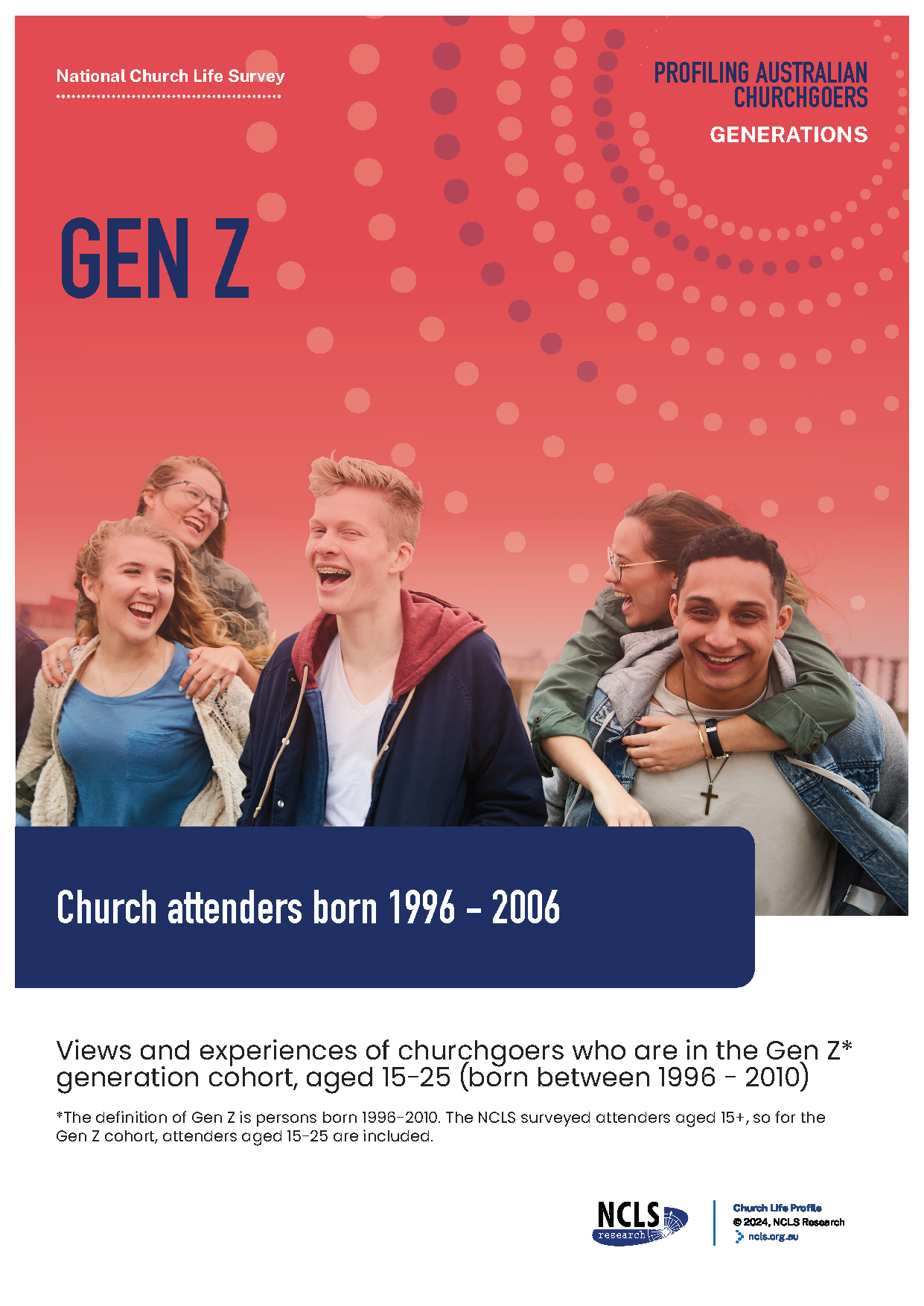NCLS Research is a world leader in research focused on connecting Christian churches, schools and agencies with their communities. Decades of rigorous and thoughtful research has examined wellbeing, spirituality, effective leadership and church health. Our vision is for thriving Christian communities understanding their role and mission within a changing society.

Announcing the 2026 NCLS!
The 2026 National Church Life Survey will take place across Australian churches in late 2026, the same year as the National Census. Hundreds of thousands of voices will contribute to the most comprehensive view of church life in the world.

Schools:
The Student Spiritual Life Survey is available now and for 2026!
Local Churches:
A suite of survey tools available at any time
Learn More View Church Life Profile
Sign in to access NCLS surveys, reports, dashboards and resources
Go to My NCLS Admin
Latest Research Findings
How often do Australians feel thankful?
As we close out another year, it’s a good time to reflect on gratitude—a simple yet powerful practice that can transform our outlook and strengthen our connections. How often do Australians experience a strong sense of gratitude or thankfulness? The 2025 Australian Community Survey reveals some interesting insights.
Church Pulse Check 2025: Tracking the health of Australian churches
New data reveals weekly attendance as churches continue their post-COVID recovery—and marks the launch of a long-term local Church Pulse Check Panel.
New analysis paints a picture of climate attitudes and actions in the Australian Church
A new report published by NCLS Research and sponsored by Common Grace draws on the latest data available from the National Church Life Survey (NCLS) and the Australian Community Survey to better understand climate-related views and actions in the Australian churches as a whole. It synthesises a picture of attitudes and actions of Australian churchgoers, church leaders and local churches, how they have changed, and how these views and actions vary.
Western Sydney Faith Communities Project: Mapping a vital social fabric
Around 10% of all Christian congregations in Australia are located in Western Sydney, making the region a significant hub of faith and community life. The Western Sydney Faith Communities Project, running from 2025 to 2028, aims to explore how these congregations—and those from other faith traditions—enrich their neighbourhoods culturally, spiritually, and socially.
Latest News and Features
NCLS Research is pleased to announce that plans for the 2026 National Church Life Survey have begun!
The NCLS Research team are currently consulting with denominational leaders about how best to facilitate the 2026 National Church Life Survey in churches across the country.
A proposal for denominational leaders is now available.
Conversations on Hope webinar
Watch now for the latest insights on Australians and hope
How hopeful are Australians? Watch this webinar to find out!
"Conversations on Hope" features latest research insights from the Australian Community Survey by NCLS Research as well as reflections by Tearfund and stories from practitioners.
Announcing the 2026 National Church Life Survey
Australian churches are invited to take part in the eight nationwide survey of churchgoers
The 2026 National Church Life Survey will take place across Australian churches in late 2026, the same year as the National Census.
Hundreds of thousands of voices will contribute to the most comprehensive view of church life in the world, in the eighth nationwide survey of churchgoers – the 2026 NCLS.
Student Spiritual Life Survey
A survey to understand the spiritual beliefs, attitudes and practices of your students and the impact of your school
Understand the spiritual beliefs, attitudes and practices of your students and the impact of your school activities on their faith.
Church Survey Tools
Easy to use survey tools to assess church health, leadership development and local community connections
NCLS Research provides a range of survey tools, that are easy to use and researcher designed, to provide insights into church life, leadership and the local community, to inform and shape modern day ministry.
Recent Publications
Additional Resources











